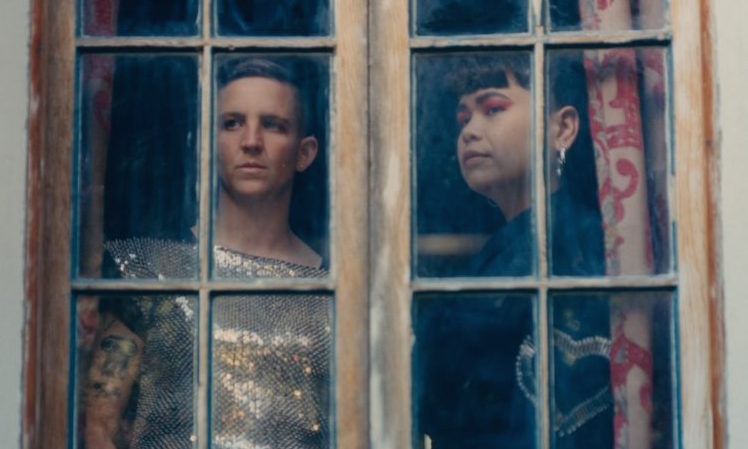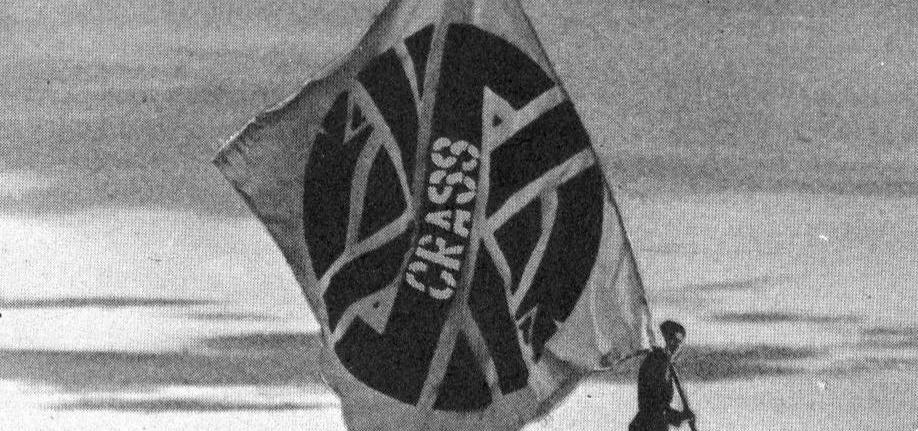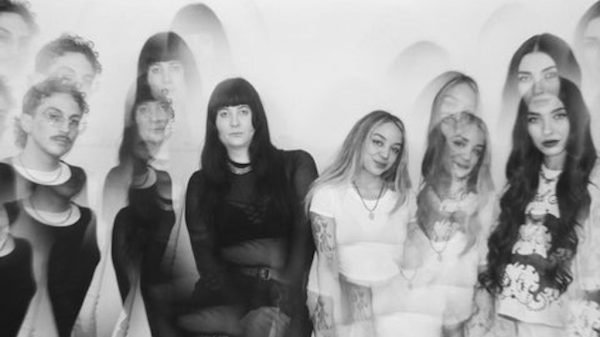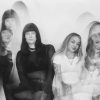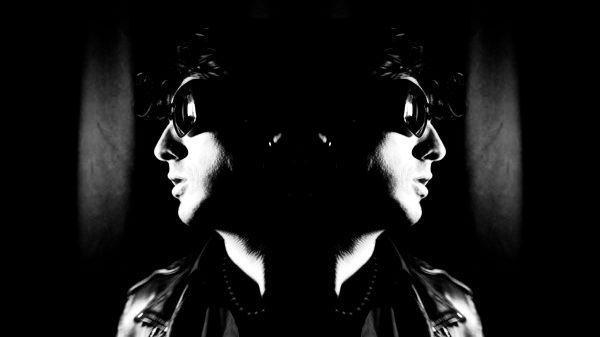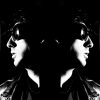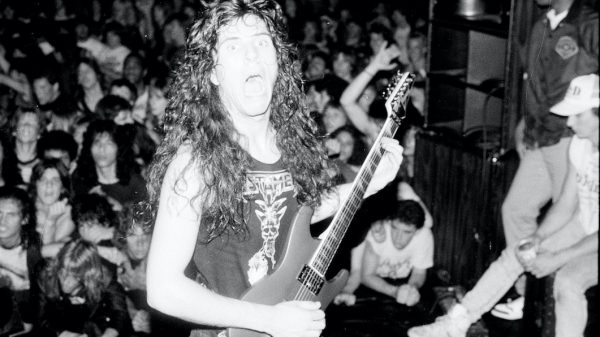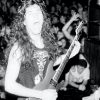Text Maxwell Williams / Photography Jordan Hemingway / Styling Alison Isbell
Feature via Dazed Digital
In 2016, the Oakland music venue and DIY space, Ghost Ship was devastated by a fire that left 33 dead, among them, members of California’s thriving music scene. As the tight-knit community came together in the wake of the tragedy, a new sound emerged inspired by their communal loss, one that is at once outspoken, raw – and sometimes droll.
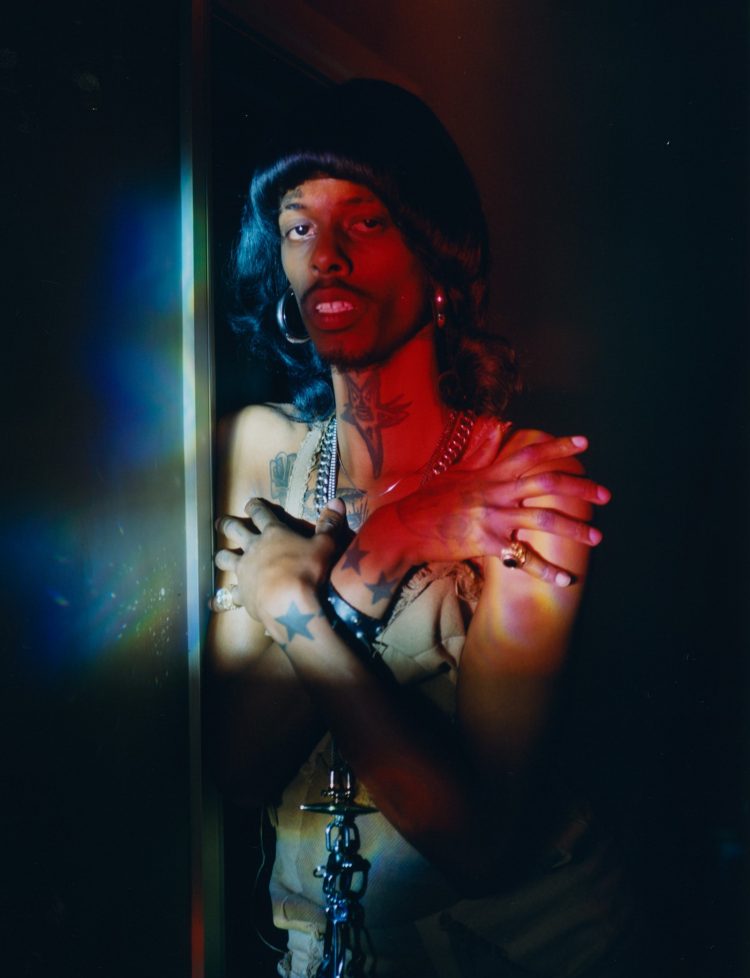
HIRAKISH
Most of these kids want to be evil, but being good is harder than being bad,” says Hirakish Ranasaki of his goth-tinged guitar and synth music. The New Orleans native – who goes, simply, by Hirakish – began his journey to the good side a few years ago, when he was cast as a runway model for Hood By Air after moving to New York. He was street-cast again in the crowd at Afropunk, landing himself a role as an acid-eating LSD dealer in the Safdie Brothers’ hit psycho-comedy Good Time. Relocating to Los Angeles eight months ago, Hirakish released a trippy alt-R&B track, “B*A*P*S 1998”, and the grungy Black Velvet EP, and has been working with Yves Tumor, collaborating on a live show at LA’s Hollywood Forever as well as an upcoming music video.
Though Hirakish’s songs often feature strangled axes and dark stream-of-consciousness lyrics, in person, he’s more interested in rhapsodising about someone known more for purple palettes than morbidity. “Prince was into veganism before everyone. Healthy foods, sexuality – before anyone else in the industry,” the musician claims. “(He was) the best artist that ever existed. Bach and Hendrix – Prince was like that, but for now.” In a world where evil is having one hell of a purple patch, it’s positivity that powers Hirakish.
PATRIARCHY
“We live in a patriarchy and we’re gonna get molested; that’s just how it is,” says Actually Huizenga of the thinking behind her band’s name and new album, Asking for It, released later this year. But there’s serious intent behind the unsettling irony of the title. “It’s (about) bringing satire to something that’s actually happening. It’s not funny, it’s just looking at something in a different way,” says Huizenga, pictured here alongside live collaborator Joseph Garrison, nodding to the sardonic humour of her work. (She also recently directed a Jon Moritsugu-esque DIY feature film called The Art of Eating.)
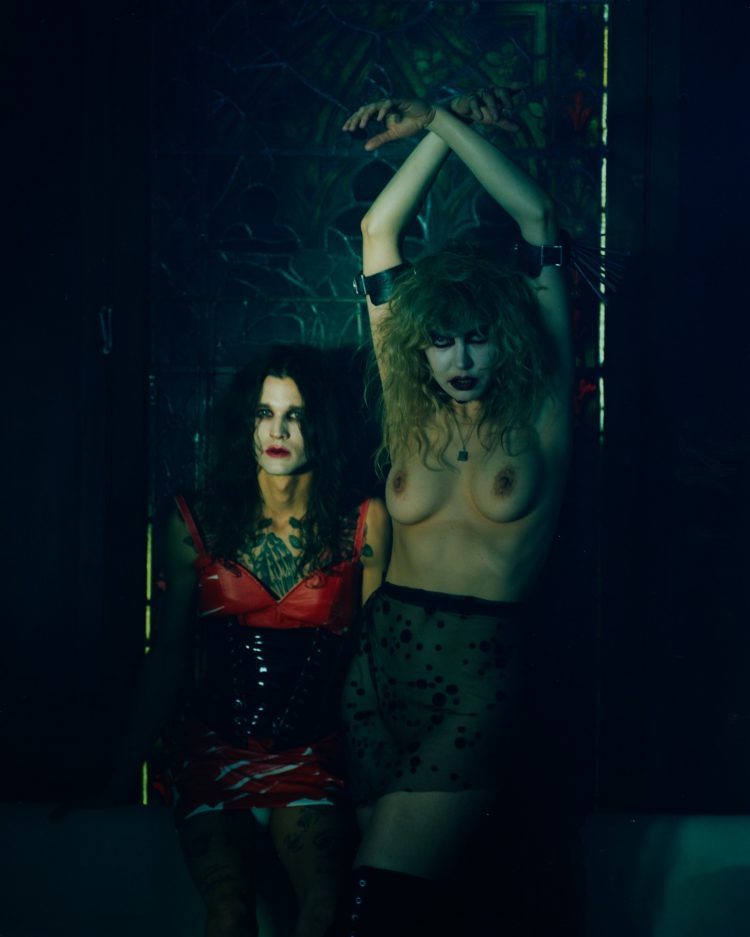
The video for “Hell Was Full,” a song from the new record, features Huizenga writhing around a banquet feast of blood and hearts, all the while chanting the song’s bridge, “Choke, choke, choke.” The techno-pop backing track plays against the visuals and lyrics to create, much like all of her art, a wholly disconcerting experience – in the best way possible. “I use my art to get deeper into the water, to take chances,” says Huizenga. “I can’t think of any other way to push the boundaries of the small time you have to be alive – (for me it’s about) using art for life, taking chances, and getting to that weird space.”
SPELLLING
Chrystia Cabral is a student at Berkeley University and a primary school teacher. She’s also an artist signed to Sacred Bones whose second full-length, Mazy Fly, is full of dark, witchy, alt-R&B that offers a missing link between Siouxsie and Solange. Recorded under the name Spellling (note the three Ls), it’s a record filled with paradoxes about how humans are dealing with our current moment – songs about utopias, but also about the “Haunted Water” of the middle passage slave route in the Atlantic.
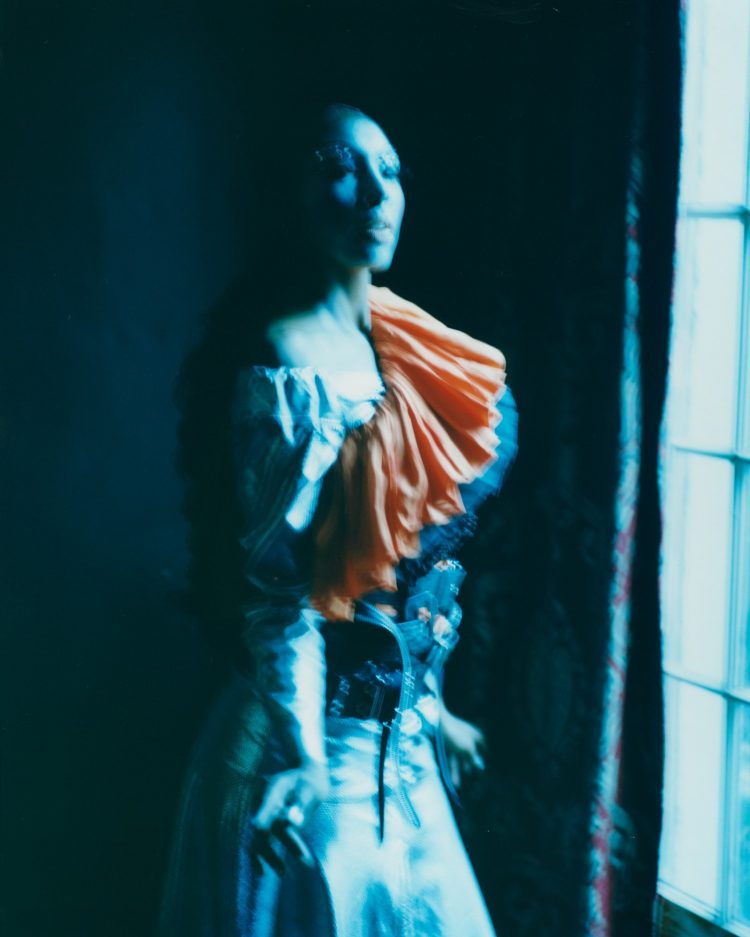
“Being a Berkeley student, there’s so much hope and optimism invested in technology – the prospect of building a new home on Mars versus the terrible violence we’re facing here,” says Cabral. “Those contradictions have been swirling everywhere. I feel like I am naturally an optimistic person, but at the same time, shit’s so heavy. I was grappling with all of those feelings making the record.”
Mazy Fly, released in February, takes its name from a daydream about her dog floating through the air. “(It’s not literally) a ‘fly’, but something that has wings,” she explains. “That’s what I would imagine (on the album): this electric-winged thing, moving through all the songs. I would see it coming out of the wires or coming into the speakers.”
SRSQ
The way Kennedy Ashlyn’s voice trembles, ascends and intensifies is not of this Earth. Full and eerie, it provides the Dallas, Texas-based singer’s solo project SRSQ, with its signature sound. “Unintentionally, I write stuff that always pushes my limits, so I have to practise a lot,” Ashlyn explains. “I always think I’ve hit the peak of what I can do, then end up pushing the boundaries more and more.”
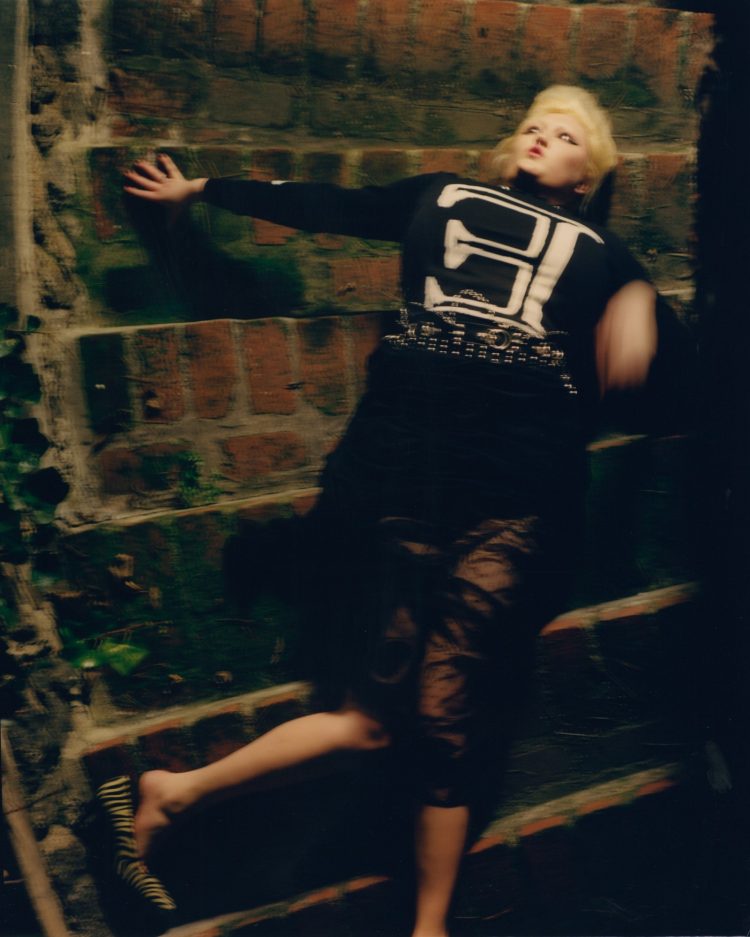
Her melancholia comes from a specific place: before SRSQ, Ashlyn was half of Them Are Us Too with musician Cash Askew, who tragically passed away in the Ghost Ship fire in Oakland, California, in 2016. Despite being based in Dallas, Ashlyn is a key figure in the west coast’s tight-knit goth community, bound together not only by a sound but by loss. On SRSQ’s Bandcamp, Ashlyn labels Unreality, her recently released debut LP, “griefwave” – a nod to the way people process the grief of others.
“Since Cash had somewhat of a following, I always felt like my grief and her death were being consumed, which was gross to me,” says Ashlyn. “I don’t think people do it intentionally, but it was weird – so to have control over the way (that grief) is being received by others, to be able to make it a beautiful thing… I think I’m OK with that.”
Read full feature HERE!
CHASMS
A ghostly dub reggae beat clatters while the silhouettes of Jess Labrador and Shannon Sky Madden float around a neon galaxy full of symbolic doorways in the clip for “Every Heaven in Between,” the melancholic, Cocteau Twins-ian debut single from Chasms’ second album, The Mirage. The song, and the album, represent a therapeutic processing for the duo, who both lost friends and loved ones in the 2016 fire at the Oakland D.I.Y. venue, Ghost Ship.
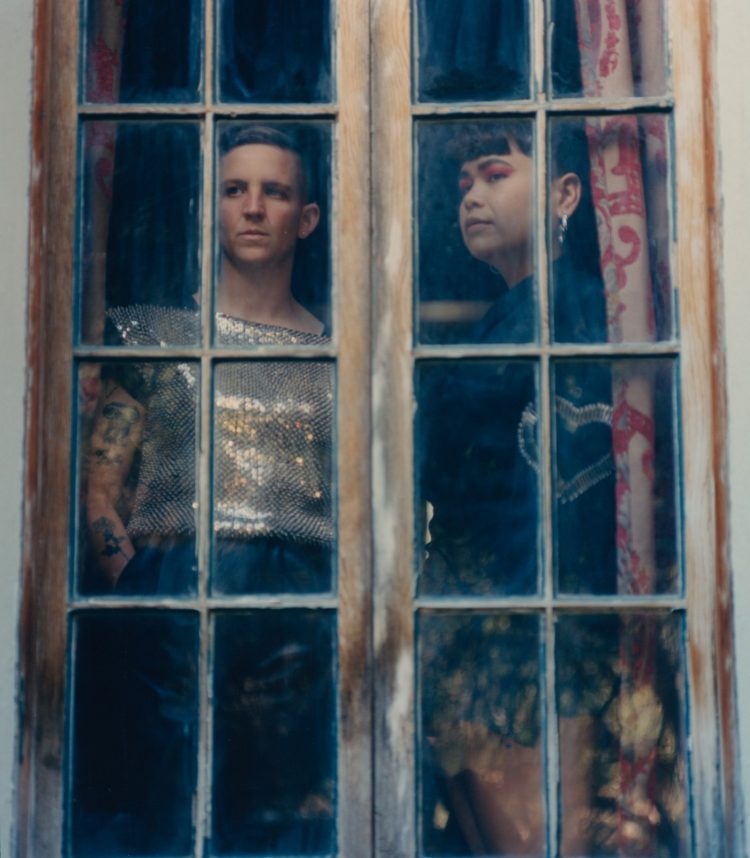
After the fire, the band relocated from the San Francisco area to Los Angeles, where they’ve found a supportive — and likeminded — community. “Here, it’s like: ‘Have a job, but you’re in a band? Fuck yeah! When are you playing next? Let me come see,’ or, ‘Do you need me to make this poster for you?’ There seems to be more of a language for creativity in music here, and I think the energy has helped to propel us to get to where The Mirage is.” Labrador, Chasms’ guitarist, agrees. “You do feel really supported,” she says of the LA scene. “In creating this record that’s a product of grief, it’s brought together so many people.”

